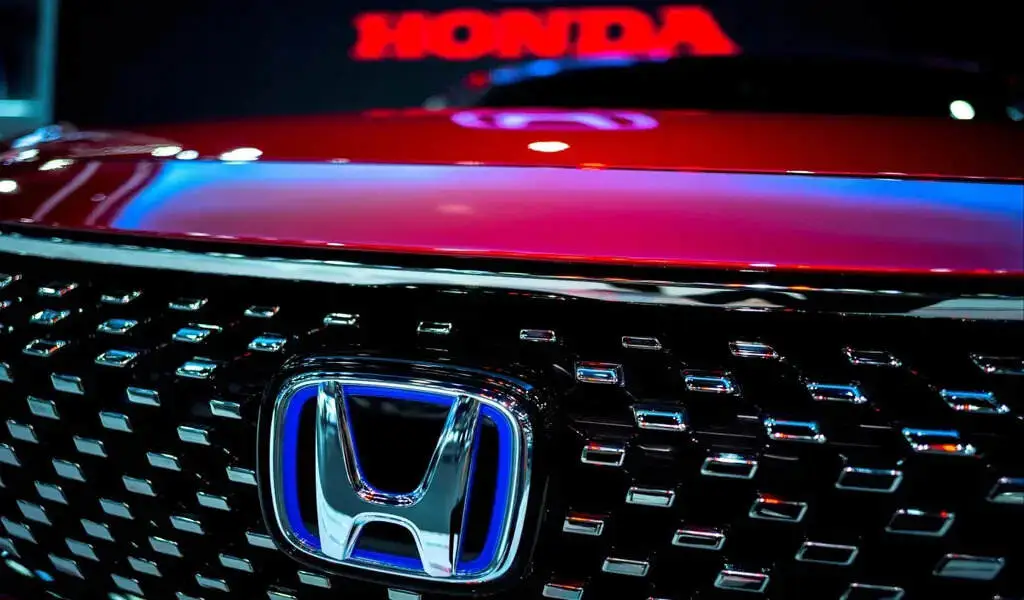(CTN News) – The Japanese vehicle firm Honda Motor made the news in a statement that was posted on Tuesday. The statement stated that the company intends to center its production at the site that it operates in the province of Prachinburi.
As a consequence of this, the production of automobiles will be halted at the facility that it operates in the province of Ayutthaya in Thailand by the year 2025.
The more difficult circumstances that the second-largest car manufacturer in Japan is facing in the country of Thailand, which is located in Eastern Southeast Asia, are exemplified by this move. Thailand is located in Southeast Asia.
There are several reasons for this, including the fact that Chinese firms are determined to grow their market share in Thailand, and a growing number of consumers are expressing an interest in electric vehicles (EVs). They both play a role in contributing to the problem.
The combined output of automobiles produced by Honda’s two facilities has fallen throughout the course of the succeeding four years, going from 228,000 vehicles in 2019 to less than 150,000 vehicles annually. This downward trend has occurred during the course of the past four years.
The preceding four years have been the time period during which this decline has taken place. With regard to the sales that the company has made in Thailand throughout the course of the past four years, there has been a consistent range of less than 100,000 to less than 100,000 for the entirety of this time period.
This is according to Honda’s spokeswoman.
When the factory first opened its doors in 1996, the company anticipates that it would continue to manufacture vehicle components at that location. When the firm finishes manufacturing vehicles at the Ayutthaya facility in the next year, the spokesperson stated that the company intends to continue producing automobile components at the plant.
In accordance with the statement that was given by the spokesman, the Prachinburi factory, which was built in 2016, will be utilized for the purpose of integrating the facilities with which automobiles are created. This was said in the statement. There are only two factories in Thailand that are owned and operated by the vehicle manufacturer, and these two factories are the only ones in the country.
According to the statement made by a spokeswoman for Honda in Thailand, the company’s goal is to reduce the disparity between the number of automobiles it produces and the number of sales it has experienced in the nation.
According to the remark that was made by the spokesman for the company, the automobile manufacturer are already exporting their products from Thailand, particularly to other Southeast Asian countries such as Indonesia and the Philippines. According to a statement that was sent by a spokeswoman for the company.
Currently, Honda has no plans to invest in Thailand.
When it comes to mainland China, Honda and Nissan Motor, a Japanese automobile manufacturer that competes with Honda, have been hit particularly hard by competition from rising Chinese manufacturers.
Nissan Motor is a competitor of Honda. As a result of the fact that these businesses provide reasonably priced plug-in hybrids and electric vehicles that are loaded with software, a significant number of customers have been drawn to them.
Now, Japanese automobile manufacturers are at risk of losing clients in countries outside of China, such as those in Southeast Asia, to Chinese companies that are increasingly attempting to increase the quantity of automobiles they export and build up operations outside of China.
As a result, Honda Japanese automobile manufacturers are facing a potential loss of customers. They are exposed to this danger as a result of the fact that Japanese brands compete with Chinese brands in these locations.
BYD, a Chinese manufacturer of electric vehicles, recently launched a plant in Thailand that will be responsible for the production of automobiles that are powered by electronic batteries.
This plant was established last week. The Chinese electric car manufacturers are beginning to establish facilities in the country, and this factory is a component of the wave of investments that they are making in the country. These investments have a total value that is greater than 1.44 billion dollars together.
SOURCE |SCMP
SEE ALSO:
Car Dealers in Northern Thailand Struggling to Stay Afloat
BYD Car Buyers in Thailand Outraged Over Huge Dealer Discounts
The PM Seeks Assurances after BYD’s Steep EV Discounting in Thailand Sparked Backlash

Salman Ahmad is known for his significant contributions to esteemed publications like the Times of India and the Express Tribune. Salman has carved a niche as a freelance journalist, combining thorough research with engaging reporting.














